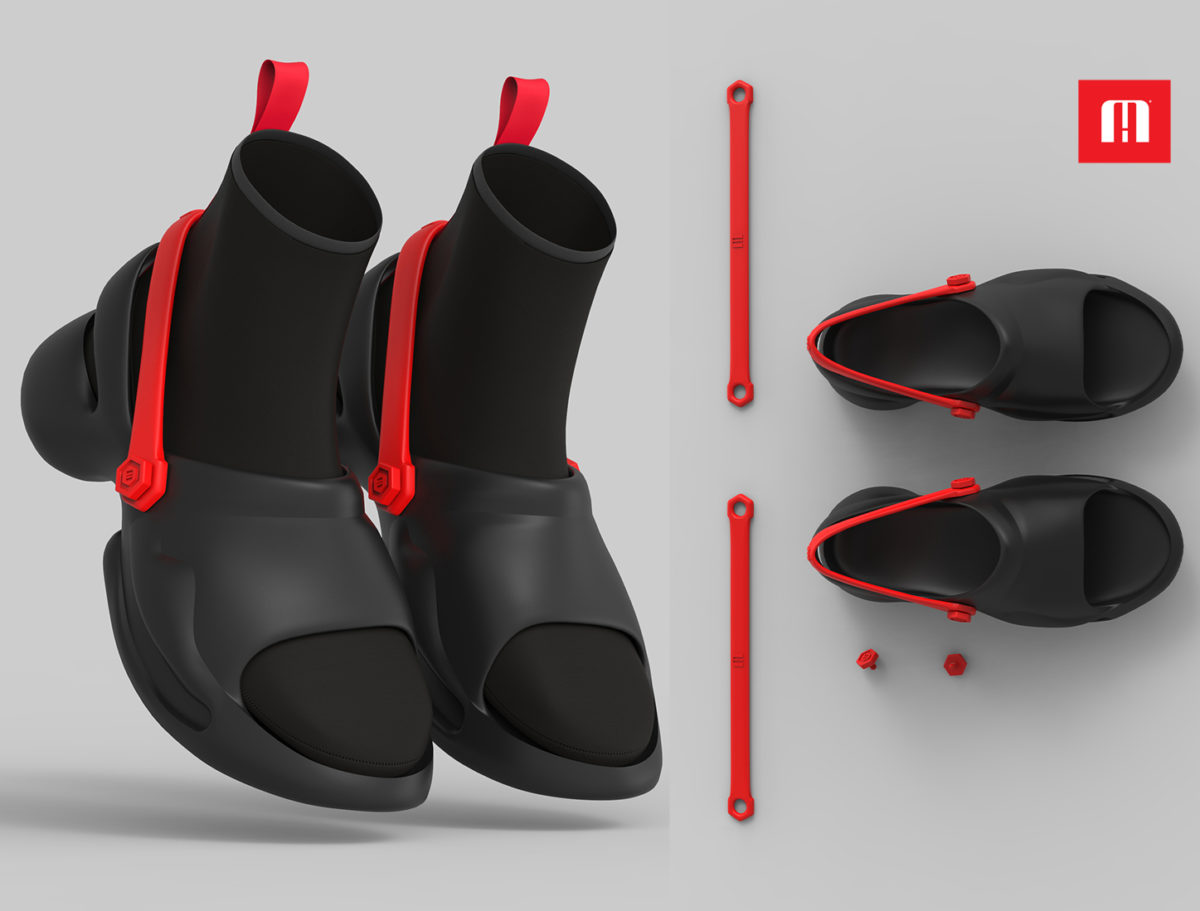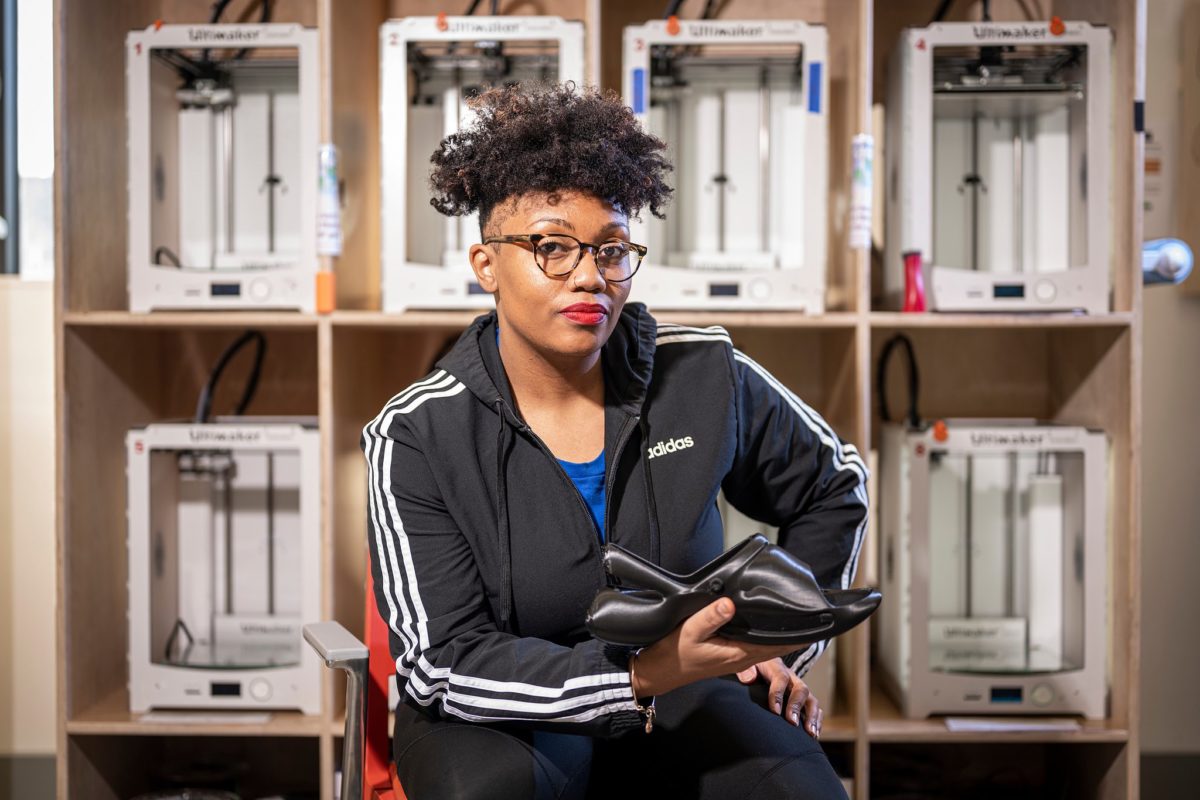When it comes to essential workers, most of the products that are being devised in the pandemic are for faces and hands. After all, these are the parts of the body that need protection from COVID-19 transmission during the pandemic.
Mikea Hugley is thinking about another reality: Healthcare workers and those who work in retail are on their feet for many hours.
“Our target market are essential people in their communities, the ones that are always on their feet serving others,” said Hugley, a 2019 graphic design graduate of MICA.
Hugley brought a passion for product design and a sense of mission to Makers for Humankind. The company’s product is footwear that functions as an “all-in-one” shoe kit with a weatherproof sock and thick sole as well as screws and straps that make the parts interchangeable. As part of the company’s model, it is committing 10% of proceeds to support the unhoused population.
“I believe my brand will be global,” Hugley said. “As much as it’s for essential workers, it’s also for people that live in different countries that don’t have access to footwear.”
The venture earned abut $29,000 as a winner of MICA’s Up/Start Venture Competition, which seeks to support creative startups from the Baltimore arts college’s community.
With a prototype and funding, Hugley is ready to pursue beta testing. The idea is that it can be produced using techniques like 3D printing and injection molding.
Hugley started the venture in 2018, after noting the people experiencing homelessness standing at a traffic light.
“I look at their sign, but then I look at their feet,” said Hugely, who teaches graphic design at Millford Mill Academy in Baltimore County. “No one’s creating a product for them.”
Socks are in greatest need for this population, so Hugley started development there, and work at MICA led to development of a shoe. It continued after graduation, and Hugley joined Station North makerspace Open Works to work on the product. Developing a pitch and business plan while working with a mentor during the Up/Start program in March brought a realization that building a business would require a bigger market, and that the shoes would be beneficial for workers like nurses, waitstaff and mothers, as well.
It led Hugley to the model: Along with serving those who need shoes, the shoes can be made for those who serve others.

Makers for Humankind shoes. (Courtesy image)
When it came time to pitch in April, the pandemic pushed the event to a videoconference meeting — a different format than the typical finale onstage. But with confidence in the model, Hugley felt at ease pitching in an environment where everyone is in their own space.
“I feel like everybody felt at home. I was sharing my passion with them,” Hugley said. “It was more of a family meeting type of vibe.”
Along with creating new products, Hugley is motivated as a Baltimore maker by giving back and inspiring others.
“As creatives, I think we should be thinking about how are we making things for our people,” Hugley said. “For humanity.”
Before you go...
To keep our site paywall-free, we’re launching a campaign to raise $25,000 by the end of the year. We believe information about entrepreneurs and tech should be accessible to everyone and your support helps make that happen, because journalism costs money.
Can we count on you? Your contribution to the Technical.ly Journalism Fund is tax-deductible.
Join our growing Slack community
Join 5,000 tech professionals and entrepreneurs in our community Slack today!

The looming TikTok ban doesn’t strike financial fear into the hearts of creators — it’s community they’re worried about

Protests highlight Maryland’s ties to Israeli tech and defense systems

Congress votes to reauthorize the EDA, marking a historic bipartisan effort to invest in innovation and job creation


